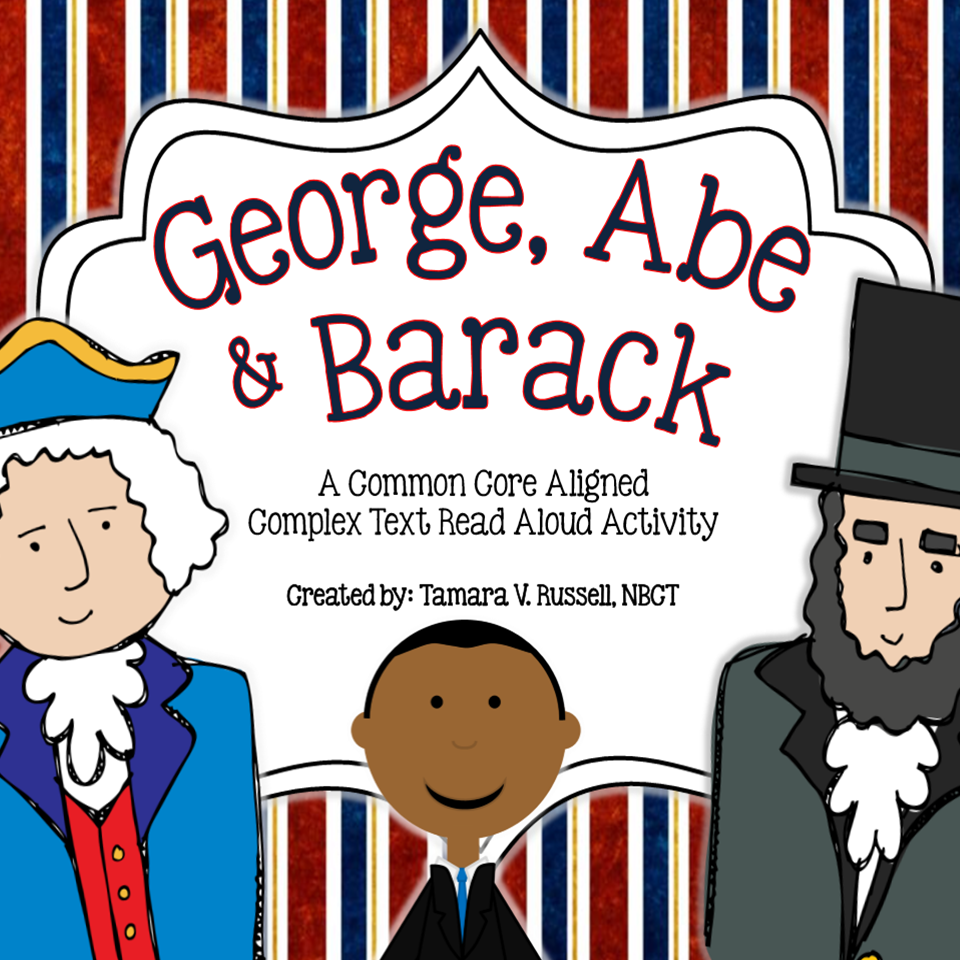Let's get started....
1.) Read aloud a variety of mentor texts.
Whenever I'm doing non-fiction writing, I like to give my students lots of opportunities to connect with the same basic facts. That repetition will help them to recall things for the benefit of their work.2.) Have a writing focus.
I usually have some type of structural issue that I am working on with the students at the time. Sometimes, I find that particular skill in the text, and I cite examples from the text...other times, I practice with them. Over the course of the year, I break down the standards to help me teach the language and grammar components.
Take for example this anchor text that I used with the students. We took a look at non-fiction text structures like headings. We discussed why the author might want to make those headings into questions. We read the page a few times and discussed how the president leads and what examples the author cites. Then we talked about the topic sentence that the author chose. To help my students with their non-fiction structures in writing, we discussed the details in this page, amongst others and we completed a thinking map for it.
3.) Use a rubric.
Rubrics can be elaborate or they can be very basic. For this particular writing, I was working with my students on adding details to their sentences. I gave them a four point rubric with specific examples of how to extend the sentence. In this case, I just wrote on the back of a 4x6 card. It's not super sexy...it was what I had at the time and I could put it under the document camera to discuss with the kids. |
| You want this for your classroom? Download it HERE. |

For this writing we focused on using both because and the word and in a sentence to add additional details. For example, in the first student's example, he said that he 'didn't want to be president because of all the work AND meetings. The second student mentioned that they didn't want to be president because they were 'afraid of doing war AND it was scary'. These are great examples of students internalizing jobs that the president is responsible for doing and then connecting their own contexts to it.
I found that using this style of instruction gave all of my learners a chance to know exactly where they stood with the assignment and they wrote a TON.
We finished up the writing activity with a directed drawing of the White House. In first grade, crafts take an awful long time. I don't have a ton of construction paper, and directed drawings rescue me from needing a bunch of construction paper. I used white printer paper and cut bulletin board paper to go on the back. Then I hung the finished writing pieces on the bottom of the drawing. Voila! We have a finished product!
 The writing pages I featured in this post are in my President's Unit. For this writing, students used the opinion piece.
The writing pages I featured in this post are in my President's Unit. For this writing, students used the opinion piece.





No comments:
Post a Comment